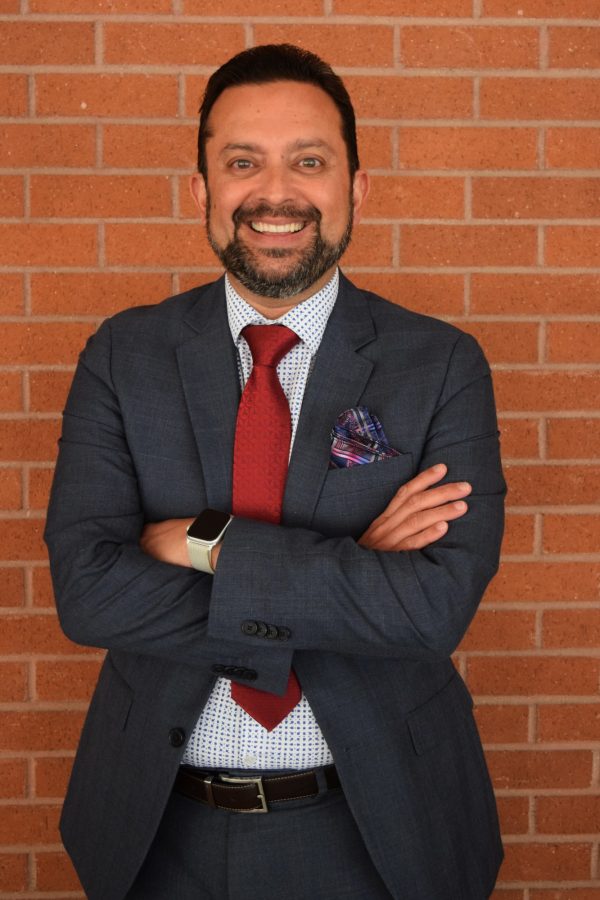Four University of Arizona Researchers were named senior members of the National Academy of Inventors on Feb. 11.
The NAI is a member organization that was created in 2010 to recognize and encourage inventors with U.S. patents and translate their inventions to benefit society. Senior members are active faculty, scientists and researchers that have successfully patented, licensed and commercialized their inventions within their communities and aspire to make an impact for the good of society.
Senior members are nominated into the NAI biannually. The UA researchers were only four of 32 people nominated into the most recent class.
Tech Launch Arizona nominated all four inductees into the NAI. Tech Launch Arizona brings to light UA’s inventions by commercializing them to the public for economic and social benefit.
The four universities innovators are:
Joe Valacich is an Eller professor of management information systems. He is one of the co-founders and CSO of Neuro-ID. According to the Neuro-ID website, its mission is in “humanizing digital experience.”
“Neuro-ID does this by helping companies using their technology, like many online lenders, to gain insight about how confidently applicants provide information,” Valacich said in an email. “Highly confident applicants may be asked fewer questions. Less confident applicants may be asked additional questions in order to resolve any uncertainty about some aspect of their information. This allows these companies to customize each customer’s journey so people answer the fewest possible questions to complete an application.”
Valacich published the leading IT textbooks and over 250 scholarly articles. According to Valacich, he has two U.S. patents and three patents pending. He has a bachelors in computer science and a masters in business administration from the University of Montana. He got his Ph.D. in management information systems at UA.
Jim Schwiegerling is a professor of optical sciences and is the co-founder of iCrx. Schwiegerling, the other co-founders and a various amount of graduate students have worked on this company over the years, and it is a technology that automatically measures prescription when you stick your head into their device. It will automatically tell the customer what glasses they need.
“I was pretty excited; it was nice to finally be recognized for doing stuff,” Schwiegerling said. “There are tons of good ideas out there, and a lot of the times they’ll get developed and they disappear into the lab or the funding runs out and stuff like that. So, being able to get it out into the world is a hurdle and getting some recognition for it and its impact is actually very rewarding.”
Schwiegerling has seven U.S. patents, including PanOptix, a trifocal interactor lens that is implanted after someone has cataract surgery instead of a person getting glasses. It has taken off in Europe, where over half a million have already been implanted, according to Schwiegerling.
He has a bachelor of science and masters degree from the University of Rochester and got his Ph.D. at UA.
RELATED: Carbon fiber fabric may change treatment for broken bones
Rajesh Khanna, is a professor of neuroscience and pharmacology. He is also a member of BIO5 Institute and the Center for Innovation in Brain Science.
He is a co-founder and chief scientific officer of Regulonix, “a company developing non-opioid therapeutics that relieve chronic pain. By indirectly targeting the well-established and genetically validated pain target NaV1.7 sodium channel and focusing on the signaling pathways that control channel activity,” according to the Regulonix website.
“If it works the way we envision and have showed it to work, it could be a very good thing for chronic pain patients,” Khanna said.
According to Khanna, he has four patents in the U.S. but also has more around the world including New Zealand, Australia, Canada, China, India and Japan.
He has over 100 scholarly articles and publications.
Jordan Lancaster is an assistant research scientist at Saver Heart Center and co-founder of Avery Therapeutics. The company “is a startup company dedicated to advancing tissue-engineered therapeutics to treat diseases and injuries to human muscle,” according to the Avery Therapeutics website.
Lancaster is the CEO of Avery Therapeutics and the inventor of Avery’s MyCardia technology; it is a “cryopreserved allogeneic tissue graft that is implanted over damaged heart tissue using minimally invasive techniques,” according to the Avery Therapeutics website.
He has two patents and several patents pending, according to the Avery Therapeutics website. He has a certificate of entrepreneurship from the Eller College and a doctorate in physiology from UA.
Follow Ciara Jean on Twitter








